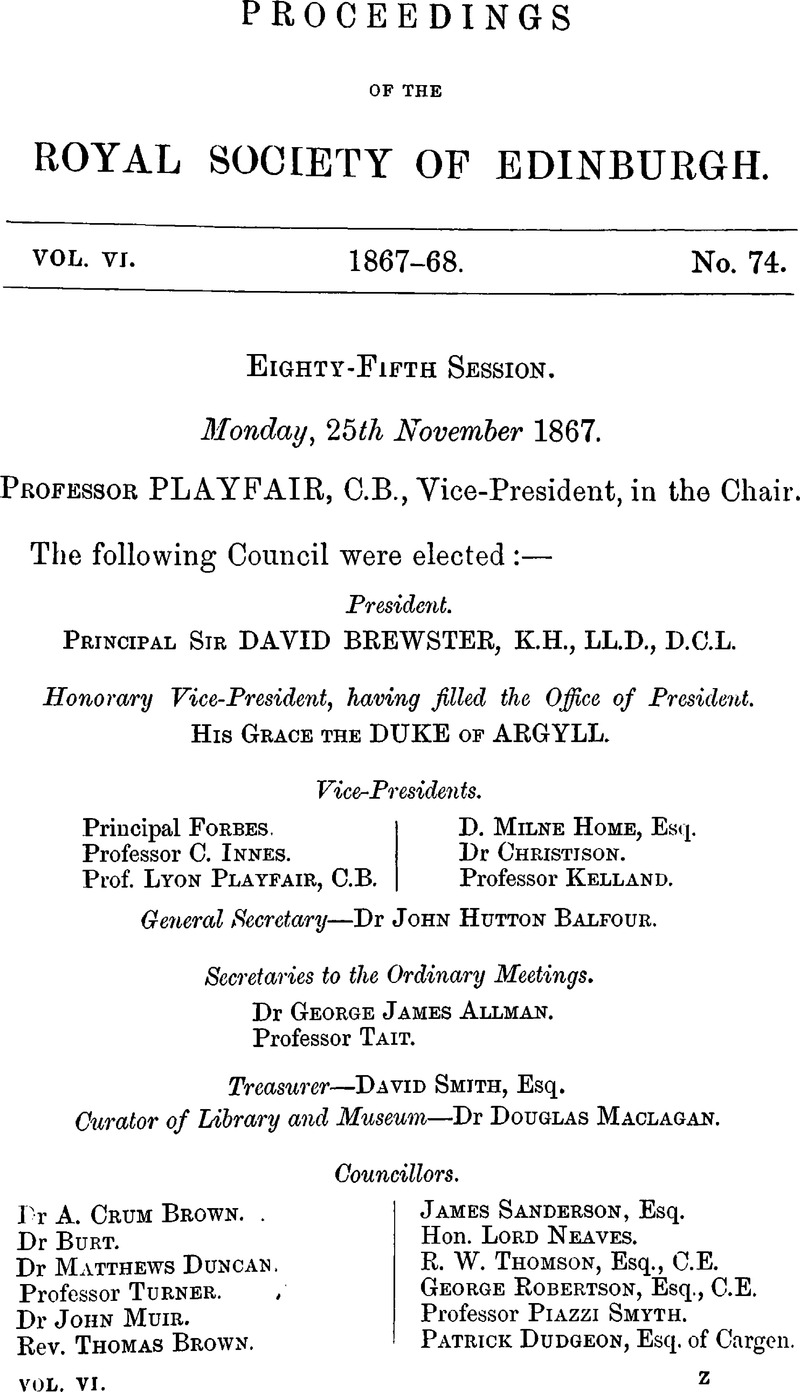No CrossRef data available.
Published online by Cambridge University Press: 15 September 2014

page 179 note * The Earl of Harrowby, as one of the Parliamentary Committee of the British Association, stated “that those who administer the affairs of the country ought, at least, to know enough of science to appreciate its value, and to be acquainted with its wants and bearings on the interests of society.”
page 179 note † Political Economy, vol. i. p. 52.
page 180 note * This meeting was attended by Sir David Brewster, who was called to the chair, by Sir Charles Manby, Secretary to the Institution of Civil Engineers, who was requested to act as secretary, and by Professor Graham, Master of the Mint, Professor Owen, Professor Wheatstone, Professor Cockerell, Mr Fairbairn, Mr George Kennie, Mr De La Rue, Mr Warren De La Rue, Dr Hoffmann, and Mr Crampton, civil engineer. Several jurors, Sir Charles Barry, and others who were unable to attend, warmly approved of the object of the meeting.
Resolutions of a more specific nature were moved by Professor Owen, Professor Wheatstone, and Professor Cockerell, and it was resolved to represent to the British Government the convictions of the jurors.
page 181 note * The following valuable observations by a competent judge, Dr R. Angus Smith, F.R.S., justify many of our suggestions:—
“Within the last thirty or forty years the violent attempts to teach the people here, by schools, mechanics' institutes, and lectures, given or promoted by benevolent persons, have wearied the souls of all those who have co-operated or even looked on with interest. In Germany, without any commotion, calmly and pleasantly, the youths have been trained in schools and colleges without number, and so thoroughly, that they are able to supply foremen and managers to their own manufacturers' establishments, and to send a supply also to foreign countries. In other words, whilst we have failed with our most violent efforts, and with much noise, to teach our own people, they have succeeded not only to teach their own citizens, but to assist in educating the rest of the world. In this matter of education the governments have been able to mould the nation's mind, and to alter the habits of a leading portion of it in a few years. A careful education would probably show its influence in less than ten years. … . We require education in the fundamental principles of physical science; the moral principles, as found in literature, are not alone sufficient either for the higher cultivation of the mind or every pursuit of the useful arts. This applies to the rich and not merely to the poor.”—Proceedings of Manchester Phil. Society, Nov. 12, 1867.
In reference to the provincial lectures, which, Dr Smith says, “have wearied the souls of their promoters,” there can be no doubt that, if properly organised by a committee in our University seats, such as the Committee for Local Examinations, a valuable course of scientific and literary instruction might be provided for every class of the community.
page 188 note * The only separate work which he published beside his volume on Education, was an edition of Brewster's Optics, with copious notes and a large appendix.
page 195 note * See “Notice sur Michael Faraday sa vie et ses Travaux, par Professeur De La Rive, Geneve, 1867” a pamphlet containing an interesting account of Faraday's discoveries. A translation of it is published in the “Philosophical Magazine,” vol. xxxiv. p. 409.